It is often said that if you want something done, give it to a busy person.
Since it was created in 1985, NEAF has been guided by a Council of people passionate about Near Eastern Archaeology and sharing it with the wider public and students.
NEAF has been fortunate to be led by some visionary, generous, and dedicated people, who have also brought NEAF members together in high quality learning, travel and social experiences.
The NEAF Council includes a President elected by the Council and a ‘Director’, nominated by the University, usually the person who holds the Edwin Cuthbert Hall Chair in Archaeology. Our founding Director was Professor Basil Hennessy AO, then Edwin Cuthbert Hall Chair, who with founding Council President Herman Black, and Vice President Dr Rod Rodriguez and the first Council, got NEAF off to a fine start and setting a very high bar for every Council since the beginning.
Current NEAF Council (2025)
Professor Lisa Adkins – Dean of FASS
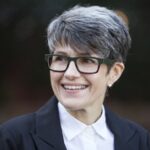
Lisa Adkins is Interim Dean of the Faculty of Arts and Social Sciences at The University of Sydney. Her home Department is Sociology and Social Policy. She has previously held an Academy of Finland Distinguished Professorship (2015-19) and Chairs in Sociology at the University of Manchester and at Goldsmiths, University of London. She served as a member of the Australian Research Council’s College of Experts (Social, Behavioural and Economic Sciences Panel), 2011-13.
Professor Alison Betts – Director
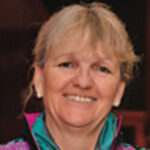
Edwin Cuthbert Hall Chair of the Archaeology and Mythology of the Ancient Near East.
Teaching and research interests: I am interested in the archaeology and history of nomadic peoples. This research theme has led me down a wide variety of paths including the prehistory of the North Arabian steppe, rock art, hunting traps and water harvesting systems, the origins of nomadic pastoralism in the Near East, nomad-state relations, the Bronze Age of Central Asia and the early development of the Zoroastrian faith.
Dr Ruth Ward – President
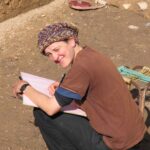
Ruth’s academic qualifications include a BA Hons in the Archaeology of Western Asia (BA Hons) from the Institute of Archaeology, University College London, and a PhD in Near Eastern Archaeology from The University of Sydney.
The focus of Ruth’s PhD thesis was on the archaeology of the symmetrical temples that dominated the religious landscape of the southern Levant during the 2nd Millennium B.C.E. Ruth also has extensive experience as a field archaeologist, working on multi-period sites across Britain and the Middle East.
Alongside archaeology, Ruth has extensive contemporary experience within the health care setting, with a strong background in human resources, organisational change and promoting the development of positive and effective leadership cultures and practice. Ruth is currently a Senior Program Manager, Executive Health Leadership within the NSW Health Education and Training Institute.
As an active NEAF member for many years, and beneficiary of NEAF grants when a PhD student, Ruth is committed to helping achieve the objectives of NEAF into the future.
Dr Craig Barker
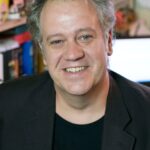
Dr Craig Barker is a Mediterranean archaeologist and museum educator and administrator. He is Director of the Paphos Theatre ArchaeologicalProject in Cyprus and the Head of Public Engagement at the Chau Chak Wing Museum. Craig has a PhD in Classical Archaeology from the University of Sydney and fieldwork experience in Australia, Greece, Turkey, and Cyprus. Craig’s research interests include theatre architecture, the Hellenistic wine trade, Hellenistic funeral practices, and perceptions of archaeology in popular culture. He has published on a wide range of Cypriot material and is currently writing a history of archaeology at the University of Sydney. He isactively involved in public archaeology, hosting ABC Radio’s Can You Dig It segment from 2015 to 2022 and is host of the CCWM podcast Object Matters.
Greg Beattie
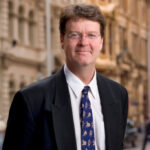
Greg Beattie is a partner at Wilshire Webb Staunton Beattie.
Dr Catriona Bonfiglioli
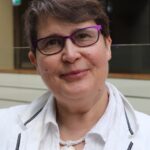
Catriona Bonfiglioli is a senior lecturer in Media Studies in the School of Communication in the Faculty of Arts and Social Sciences at UTS.
Catriona is the JERAA/ANZCA Anne Dunn Scholar 2021.
You can view her UTS profile here.
Dr Amanda Dusting
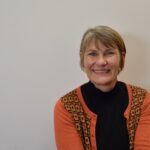
Amanda Dusting did her undergraduate degree and PhD in Near Eastern Archaeology at the University of Sydney. Her PhD was titled ‘The Architecture of Achaemenid Qal’eh Kali,’ focusing on the site stratigraphy and architecture revealed through excavations at Qal’eh Kali in Fars province, Iran. Her experience excavating on research projects has ranged from sites in the Mediterranean: Cyprus, Sicily, and Italy to the Middle East: Jordan, Syria, Iran and Iraq as well as commercial projects as Excavation Director at historic sites in Sydney. Most recently Amanda has been part of the British Museum Iraq Emergency Heritage Management Training Scheme excavating in Iraqi Kurdistan.
Dr Jamie Fraser
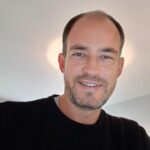
Jamie Fraser is Curator: Ancient Levant and Anatolia at The British Museum. Jamie first entered the museum world as an artefact registrar at the National Museum of Afghanistan in Kabul (2013-14). After completing his PhD in Middle Eastern archaeology in early 2015, Jamie became Project Curator for the Ancient Levant at the British Museum. He joined the (then) Nicholson Museum as Senior Curator in 2017.
Jamie has worked on archaeological projects in Jordan, Syria, Iraq, Afghanistan, Uzbekistan, Kashmir, Greece, Cambodia, Australia and the Solomon Islands. He currently directs the Khirbet Ghozlan Excavation Project in north Jordan, investigating the production of olive oil around 2000 BCE.
Dr Melissa Kennedy
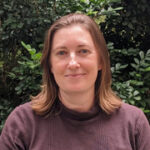
Dr Kennedy holds a PhD in Near Eastern Archaeology and leads important fieldwork in the Middle East. Currently she is the Co-Director of PAKEP – Prehistoric AlUla and Khaybar Excavation Project. Dr Kennedy is active in the international research community and has published regularly in scholarly journals and the popular press. Dr Kennedy teaches in Archaeology at the University of Sydney, has regularly.
Dr Joseph Lehner
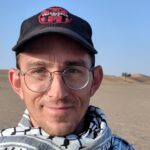
Joseph (Seppi) Lehner is an anthropological archaeologist who specializes in early complex societies of southwestern Asia and is currently an Australian Research Council DECRA Fellow at the Department of Archaeology at the University of Sydney. He has been a member of the NEAF Council since 2021. Lehner finished his PhD at the UCLA Cotsen Institute of Archaeology and is a past Alexander von Humboldt German Chancellor Fellow at the University of Tübingen and a Senior Fellow at the Research Center for Anatolian Civilizations at Koç University in Istanbul. By developing and adapting new methods in materials science and geochemistry, his work explores the development of early economies, trade, and technology, in particular the innovations and development of metallurgy. Lehner is codirector of the Kerkenes Project (Turkey), Cape Gelidonya Shipwreck Project (Turkey), and the Archaeological Water Histories of Oman Project.
Jack McBride BA, Dip Ed. – Minutes Secretary
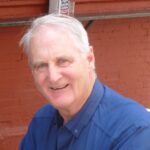
I am a retired high school principal. For most of my career I was a teacher of English and history in NSW public high schools. I finished my career with the NSW Department of Education and Training as a project officer overseeing the raising of the school leaving age.
Over time, my interest in history led me to archaeology, the study of which prompted me to apply as a volunteer at Pella. My first dig was in 2011 and my expectations were so well met that I have been a member of each subsequent season at Pella. In 2019 I worked as a volunteer on the Paphos excavations led by Dr Craig Barker.
In 2018 I began work as a volunteer librarian helping to catalogue the NEAF library at CCANESA (now the Vere Gordon Childe Centre or VGCC), accessioning new acquisitions and incorporating the NEAF catalogue onto the overall VGCC database.
Dr Margaret O’Hea
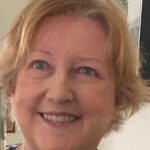
History Honours prepared me for a doctorate on the transition from Late Roman Gaul to Early Mediaeval Francia, by using both the idea and the reality of the villa in the Roman province of Aquitanica Prima as a thermometer for cultural change into the post-Roman period. How, why and at what point did the concept of the villa segue into the core of the mediaeval village? This research required me to endure summer field trips to the warm and sunny heartland of France, roaming the wine-growing countryside in search of villa remains which were mostly excavated in the 19th century.
Archaeology Honours also led me to Jordan, as a junior member of Sydney University’s Expedition to Pella back in December 1982. This experience, initially under the leadership of the late and very much lamented Tony McNicoll and Emeritus Prof. Basil Hennessy, has fostered a life-long interest in the transition from Roman to early Islamic material culture in the region of the Roman Decapolis. I continue to be a senior team-member of this exciting and longstanding excavation project.
From 1994-1996,I co-directed a Pella Hinterland Survey jointly with Dr Pamela Watson (then Asst Director of the British Institute at ‘Amman for Archaeology and History). This was a 3-year field survey which examined in detail the evidence for utilisation of the land and water systems of the hinterland of the city of Pella, in order to understand better the economic infrastructure of the local region in the Roman and Byzantine periods.
A necessity to eat in the early 1990s also developed some experience as an historical archaeologist in working on urban sites in Sydney, including First Government House – this interest in Australian archaeology post-1788 continued until 1997 in the guise of co-teaching archaeological Field Methods in conjunction with Flinders University for the now-defunct Graduate Diploma in Archaeology.
Apart from being a dirt (and sometimes dirty) archaeologist, I specialise in the analysis of glass in the ancient Near East – how it was used, in what proportions to other media of utensils, and how those uses changed over time and across regions. Most of this work is centred upon the Roman-Byzantine and early mediaeval periods in Jordan, Syria, southern Turkey and now central Greece. Occasionally, I am given the opportunity to study earlier material, and have published on glass in the Iron Age.
Here in the University of Adelaide, I am also the Director of our Departmental Museum of Classical Archaeology.
Pru Sheaves – Vice President
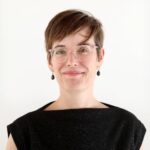
I have worked in the New South Wales public sector in policy and management positions for the majority of my career. I have been a Committee Director for the Legislative Assembly of New South Wales Parliament where I provided advice and support for the Joint Parliamentary Committee on the Office of the Ombudsman and the Police Integrity Commission, the Public Bodies Review Committee and the Committee on Children and Young People. I was the Executive Officer at the Police Integrity Commission where I provided strategic support to the Commissioner, managed the internal governance activities of the Police Integrity Commission and managed all internal and external communications and Parliamentary relations. More recently I have worked as a probity consultant to various New South Wales departments in relation to major procurements such as NSW Transport new metro railway station procurement and Western Sydney Airport Corporation as part of their early earthworks procurement program. I have also conducted fraud risk assessments for the NSW Police Force, Multicultural NSW and the International Convention Centre and reviewed Department of Industry conflict of interest management.
Additionally I volunteer for the Centre for Public Integrity providing secretariat services for their Board and Committees and I am part of the Acacia Scholarship program mentoring high achieving students at the high school I attended. I have volunteered at Pella in the 2015, 2017 and 2019 seasons. I am also a part time doctoral candidate at Sydney University, My thesis is called Gilead in the Iron Age: re-evaluating a disputed territory on the periphery of empires and draws in large part on the Iron Age material from Pella.
Jennie Skulander
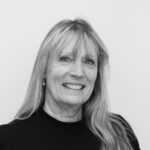
I am currently a Research Liaison Librarian at the University of Newcastle.
During my time at the University Library I have supported a variety of cohorts including Education, History, Business and Law as well working as the hospital liaison Librarian at the Central Coast Local Health District.
Prior to life in the Library in career spanning 30+ I worked as a self-employed Remedial Massage Therapist, ran a small family-owned car stereo business and, initially after leaving school, worked as a dental nurse.
My love of all things ancient lead me to complete a BA Classics (Honours, 1st class) as a mature aged student at the University of Newcastle.
A serendipitous friendship provided an opportunity to apply as a volunteer at Pella in Jordan in 2013 and I have been part of the project each season since.
Dr. Holly Winter
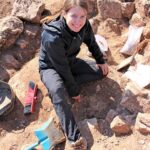
Dr. Holly Winter has a PhD from the University of Sydney, and specialises in Near Eastern Archaeology. After completing her undergraduate degree and Honours at Flinders University, Holly moved to Sydney to pursue her PhD, where she completed her thesis on palace function in the Middle and Late Bronze Age in the Southern Levant. She has convened the Near Eastern Seminar Series (NESS) for the past four years, which is a weekly series of talks by students, staff and academics on Near Eastern archaeology at the University of Sydney. Holly is a trench supervisor and team member of the University of Sydney Pella Excavation Project and the British Museum excavation project Khirbet Umm al-Ghozlan in Jordan. In addition to working on several overseas projects, Holly is a senior archaeologist for Casey and Lowe, a historical archaeological and heritage consulting company in Sydney.
Ms Susan Wrigley – Treasurer
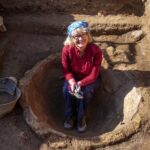
After a career in finance (Vice President, J.P. Morgan), in 2011 Susan Wrigley completed a Bachelor of Arts (Hons 1) at the University of Sydney majoring in Archaeology. Prizes included the Max Le Petit and the Thomas Dunbabin Prizes for Archaeology, the Countess Freehill Prize, the Walter Reid Prize, and the University of Sydney Academic Merit Prize. Since graduating she has excavated at Zagora, Pella and Paphos as well as at historic sites around Sydney. Susan also works as an education officer and administration assistant at the Chau Chak Wing Museum and volunteers at the Archaeology Research Hub. She is passionate about raising the profile of and sharing the results of the excavations associated with the University of Sydney with both the general public and with students at the University. She brings experience in finance and working within the University environment.
NEAF Council History
Our founding Director was Professor Basil Hennessy AO, then Edwin Cuthbert Hall Chair, who with founding Council President Herman Black, and Vice President Dr Rod Rodriguez and the first Council, got NEAF off to a fine start and setting a very high bar for every Council since then
The Committee in 1988 comprised:
- Professor Basil Hennessy – Director
- Mrs Maree Browne, President
- Dr Rod Rodriguez – Vice President
- Dr John Tidmarsh
- Mr Jon Hosking
- Mr Patricia Nicholas
- Mrs Catherine Southwell-Keely
- Lady Winifred Stephen
- Dr Alan Walmsley
- Mr David Worland
In 1993 the Council was joined by Dr Stephen Bourke AM who served as Treasurer for NEAF from 1994 until 2020.
Maree Browne and John Tidmarsh established the very popular Saturday Study Series and the Evening Lectures. These are volunteer led, and it was not unusual to see ‘Maree, John and Councillor helpers setting up chairs, hauling home-made treats and tea and coffee set-ups upstairs to lecture theatres for morning tea – and then usually delivering a world-class lecture as well.
Our successful Tour activities also started in 1987 – working with respected tour companies such as Academy Travel and Alumni Travel, who continue to be valued partners.
In between they were juggling coordination of Pella volunteers, co-Directing the Pella Projects, and continuing their own professional careers.
Due to new University rules on Foundation governance, 2020 saw the loss of eight dedicated Councillors who had served for up to 25 years each.
In April 2021 we had our first ‘window’ to get retiring NEAF councillors together with friends, family and NEAF members to express our appreciation for their service. In the brand-new Chau Chak Wing Museum Auditorium at the University of Sydney we honoured:
- Maree Browne, President 1987-2002
- Dr John Tidmarsh, President 2003-2014
- Dr Wendy Reade, Vice-President 2006 – 2014; President 2015-2019
- Dr Paul Donnelly, Vice-President 2015-2019
- Dr Stephen Bourke AM -Treasurer 1993-2020
- Dr Kate da Costa,
- Michael Rodriguez
- The late Dr Michele Cotton,
- Ben Churcher
- Sandy Parker
NEAF also honoured and thanked Karen Hendrix, who has been the Administration Officer of NEAF 27 years and the lynchpin of the Pella Volunteer Scheme. Karen has coordinated the Volunteers from the moment they apply to be a volunteer, through getting to Jordan, getting settled into the dig house, and integrated in all the activities of the dig. Karen knows pretty much all our NEAF members by name and she does a fabulous job keeping everyone heading in the right direction in the NEAF office.
Dr Stephen Bourke AM became a Member of the Order of Australia in the 2020 New Year’s Honours List. This award recognises his lifetime commitment to research and teaching, and his contribution to the relationship between Jordan and Australia.
2022 sees the retirement of our current Vice-President Dr Ross Burns, a long standing NEAF Councillor. Dr Burns served with distinction as a senior Australian diplomat in the Middle East and elsewhere. He is also a renowned expert on the architecture of Damascus and Aleppo in Syria and leads or contributes to international projects including at Oxford University (conversion of Roman temples to churches/synagogues/mosques in the Levant) and Manar al-Athar photo database of monumental art of the Christian and Early Islamic Period. Dr Burns has been a significant contributor to NEAFs lecture and events programs.